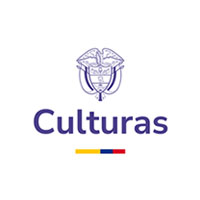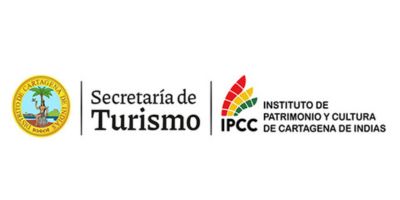Hay Festival Cartagena 2025
The twentieth edition of Hay Festival Cartagena de Indias will be held from 30 January to 2 February. In this page you can find the events in the general programme as well as Hay Festival Joven activities for university audiences, Hay Festival Comunitario sessions which took place in different areas of Cartagena, Reading Clubs and Talento Editorial.
For any inquirie, please contact tickets@hayfestival.org and contacto@hayfestival.org. Consulta el programa en PDF.
Event 49
Mábel Lara and Edna Liliana Valencia in conversation with Camila Osorio
Natural as their hair
Centro de Formación de la Cooperación Española (Patio)
Read moreEdna Liliana Valencia and Mábel Lara were pioneers in showing their Afro hair in a natural manner on Colombian television. Valencia did so first on Noticias RCN, becoming the symbol of an entire community. In 2016, after almost 15 years on the screen, Lara decided to appear for the first time with a more natural hairstyle, breaking with the dominant canons of beauty. These gestures challenged the stereotypes and lit up a minor revolution. Ten years later, Lara published Pelo libre, alma libre, about a decision that underlined the value of hair in Afro identity. Valencia, in turn, has looked at the roots and racial dynamics of the continent in La diáspora perdida. Both journalists, role models for a change that many colleagues have followed, will talk to Camila Osorio about a natural decision that is also a political one.
All events on Saturday, January 31st will be free for people with ID from the department of Bolívar. Complimentary tickets can be requested —up to capacity— at the box office of the Hay Festival (Centro de Convenciones) showing your identification on the same day the event is taking place.

Event 50
Andrés Bermúdez Liévano, Fernanda Pineda and Jordan Salama in conversation with Andrea Díaz Cardona
Covering socio-environmental conflicts from an ethical perspective.
Palacio de la Proclamación (Auditorio Juan José Nieto)
Read moreWhat would it mean to cover socio-environmental conflicts from an ethical point of view? It would mean recognising affected communities and giving them a voice, talking about asymmetrical power relations, and promoting environmental justice in the territories. We invite the following guests to talk about ethically reflecting these problems in their reporting: Andrés Bermúdez Liévano, journalist and editor specialising in environmental investigation at the Centro Latinoamericano de Investigación Periodística (CLIP); Fernanda Pineda (Colombia), winner of a Gabo Prize in the Photography category for Yolüja, a portrait of the spiritual and environmental transformation of La Guajira; and Jordan Salama (USA), a journalist who specialises in migration, the environment and culture, who has recently written about the past and present of the River Magdalena. In conversation with Andrea Díaz Cardona.
All events on Saturday, January 31st will be free for people with ID from the department of Bolívar. Complimentary tickets can be requested —up to capacity— at the box office of the Hay Festival (Centro de Convenciones) showing your identification on the same day the event is taking place.
With the support of the Ford Foundation
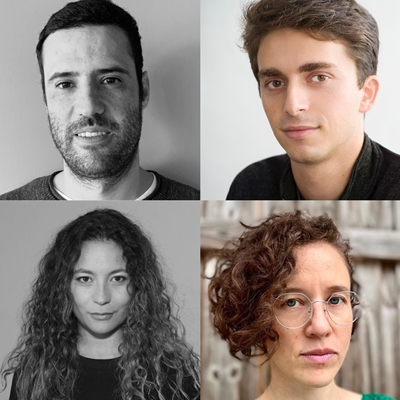
Event CL5
Book Club with Pedro Mairal and Ana María Aponte
The new ones
Casa Hay Festival SURA / Bancolombia (Centro de Convenciones)
Read moreThe Hay Festival Cartagena de Indias reading clubs offer intimate encounters with a selection of festival guests. These are spaces for an in-depth dialogue about authors’ recent work. At this event, Pedro Mairal (Argentina) will talk to Ana María Aponte about Los nuevos.
Please read the book before attending

Event HFJ17
Fer Rivas in conversation wtih María Raquel Pacheco
I was a boy
Universidad Tecnológica de Bolívar (sede Manga, auditorio Jorge Taua)
Read moreYo era un chico is everything that Fer Rivas (Spain) did not dare to say to her father before he died. An autobiographical novel in the form of a long letter, in which the author speaks about everything that was not mentioned before. She reveals her true identity, and confesses her shame and fear when it came to telling him in life. This is also a fierce criticism of an oppressive masculinity that made healthier father-son relations impossible. “If my past Fer had had the chance to read this, the world would have been different.” In conversation with performing artist and researcher María Raquel Pacheco Guzmán.
With the support of the Institut Ramon Llull
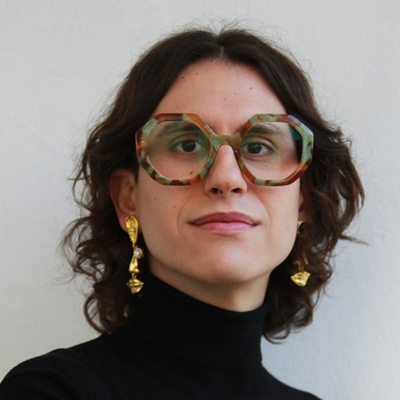
Event 26
Carissa Véliz in conversation with Daniel Marquínez
The importance of our privacy
Teatro Adolfo Mejía
Read moreWe pass on data every time we browse the Internet and use the social media, without concern for the value our privacy has. We feel we are making our everyday lives easier, but we are not aware of the power we are giving to private companies. Carissa Véliz is the author of Privacy is Power: Why and How You Should Take Back Control of Your Data and The Ethics of Privacy and Surveillance in which she talks of the practical and philosophical risks of losing our privacy in such a digital society. She will talk to the Fundación Gabo Projects Director Daniel Marquínez.
All events on Saturday, January 31st will be free for people with ID from the department of Bolívar. Complimentary tickets can be requested —up to capacity— at the box office of the Hay Festival (Centro de Convenciones) showing your identification on the same day the event is taking place.
With the support of the Ford Foundation and Acción Cultural Española, AC/E

Event 51
Annie Jacobsen in conversation with Michael Stott
How a nuclear war would unfold
Centro de Convenciones (Auditorio Getsemaní)
Read moreAnnie Jacobsen (USA) was a Pulitzer Prize finalist with The Pentagon’s Brain, which was a detailed look into the US military and intelligence apparatus, a field that she has also dealt with in Area 51 and Operation Paperclip. Her latest book, Nuclear War: a Scenario, describes —using realistic events, actions and protocols— how exactly the nuclear war that would bring about the end of humanity might unfold. She will be in conversation with Michael Stott, Latin American editor of the Financial Times.
Simultaneous interpretation from English to Spanish available
All events on Saturday, January 31st will be free for people with ID from the department of Bolívar. Complimentary tickets can be requested —up to capacity— at the box office of the Hay Festival (Centro de Convenciones) showing your identification on the same day the event is taking place.
Sponsored by Promigas, Surtigas and Spec

Event 52
Janne Teller in conversation with Marianne Ponsford
Centro de Convenciones (Salón Barahona)
Read moreJusticia is Janne Teller’s first novel in eleven years. She is known around the world for works such as Nothing, and the Danish writer has needed two decades to complete this book, whose origins lie in a time when she worked as a UN diplomat. Set against the backdrop of the Palestinian-Israeli conflict —“the mother of all conflicts” according to the author—, she traces the complex relationship between a father, a UN representative, and his activist daughter, whose killing he must try to come to terms with. In conversation with Marianne Ponsford.
Simultaneous interpretation from English to Spanish available
All events on Saturday, January 31st will be free for people with ID from the department of Bolívar. Complimentary tickets can be requested —up to capacity— at the box office of the Hay Festival (Centro de Convenciones) showing your identification on the same day the event is taking place.

Event 55
Elvira Liceaga, Yeniter Poleo and Joca Reiners Terron in conversation with Alexandra Vives
Traumas, vulnerabilities, death
Palacio de la Proclamación (Auditorio Juan José Nieto)
Read moreThe most recent novels by Elvira Liceaga (Mexico), Yeniter Poleo (Venezuela/Colombia) and Joca Reiners Terron (Brazil) make for intense experiences. The shortness of breath that can result from reading Las vigilantes, in which the three women protagonists have a connection characterised by loss and mourning; the silenced traumas of Las costuras invisibles, of inter-familial sexual violence, where the domestic becomes the political; and death, present from the very beginning of La muerte y el meteoro, set in the Amazon region, where the last members of the Kaajapukugi tribe survive.
All events on Saturday, January 31st will be free for people with ID from the department of Bolívar. Complimentary tickets can be requested —up to capacity— at the box office of the Hay Festival (Centro de Convenciones) showing your identification on the same day the event is taking place.
With the support of the Ford Foundation

Event 60
Mary Grueso and Bárbara Muelas in conversation with Mar Ortega
The language renewed
Centro de Formación de la Cooperación Española (Patio)
Read moreThe Colombian Academy of the Language —the continent’s oldest— has taken over a century and a half to open its doors to racialized women. This systematic invisiblisation has started to be remedied this year with the recognition as members of the institution of the Afro-Colombian poet Mary Grueso and the Misak linguist Bárbara Muelas. Muelas is working on the first Namtrik-Spanish dictionary and Grueso has been showing for years that her poetry, in the Afro oral tradition, is also literature. The two will talk to Mar Ortega about the historical repercussions of these appointments.
All events on Saturday, January 31st will be free for people with ID from the department of Bolívar. Complimentary tickets can be requested —up to capacity— at the box office of the Hay Festival (Centro de Convenciones) showing your identification on the same day the event is taking place.

Event CL6
Book Club with Marcos Giralt Torrente and Iván Cárdenas Donado
The illusionists
Casa Hay Festival SURA / Bancolombia (Centro de Convenciones)
Read moreThe Hay Festival Cartagena de Indias reading clubs offer intimate encounters with a selection of festival guests. These are spaces for an in-depth dialogue about authors’ recent work. At this event, Marcos Giralt Torrente (Spain) will talk to Iván Cárdenas Donado about Los ilusionistas.
Please read the book before attending

Event HFJ18
Karima Ziali in conversation with Mariana Inés Tezón
Universidad de Cartagena, Claustro de San Agustín (Biblioteca)
Read moreUna oración sin dios is the debut novel of the philosopher and writer Karima Ziali (Morocco). It is a book that is a prayer which “transgresses the order” and a fight against an imposed identity. The main character, Morad, wakes up after a night of excess, and before him is his little world, made up of Farida, a mother whose love for her children has become asphyxiating; Moha, the older brother who has left the family home; Salma, the younger sister who takes refuge in it; the cautiousness of Saleh, the father; and Doménech, a counterpoint, who can act as a guide. It is a novel made up of silences and vivid images. In conversation with Mariana Inés Tezón.
With the support of Acción Cultural Española, AC/E
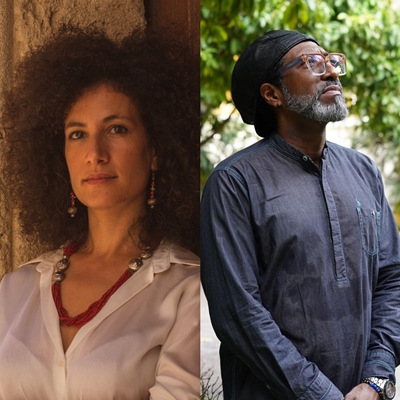
Event 56
Silvio Rodríguez (digitally) and Daniel Mordzinski in conversation with Jorge Perugorría
Silvio Rodríguez, diary of a trovador
Centro de Convenciones (Auditorio Getsemaní)
Read moreThe Hay Festival Cartagena de Indias will be the setting for the global presentation of the book Silvio Rodríguez, diario de un trovador. The texts that the singer-songwriter has written especially for this book include fragments of his private diary, and these are combined with 143 unpublished photos by Daniel Mordzinski. The two authors will talk about the nine years that they have been working together, during which Mordzinski has portrayed, unfiltered and with full creative freedom, the family life of Silvio Rodríguez, his tours in Latin America and Spain, his encounters with other creators and the essential geographies of his life, including his hometown of San Antonio de los Baños. They will be in conversation with Cuban film actor and director Jorge Perugorría.
Silvio Rodríguez will participate virtually
All events on Saturday, January 31st will be free for people with ID from the department of Bolívar. Complimentary tickets can be requested —up to capacity— at the box office of the Hay Festival (Centro de Convenciones) showing your identification on the same day the event is taking place.

Event 57
León Valencia in conversation with Mábel Lara
Centro de Convenciones (Salón Barahona)
Read moreThe writer and political analyst León Valencia has created a work of fiction about friendship and love in La vida infausta del negro Apolinar. In this conversation, he will talk to Mábel Lara about a novel that tells the story of the protagonist’s last adventure. In it, Apolinar Mosquera, aged and infirm, asks an old friend to keep a promise: that he tell his story. So begins an exchange of letters that open up memories and revisit a shared pain whose wound was never healed.
All events on Saturday, January 31st will be free for people with ID from the department of Bolívar. Complimentary tickets can be requested —up to capacity— at the box office of the Hay Festival (Centro de Convenciones) showing your identification on the same day the event is taking place.

Event 58
Carlos Granés in conversation with Carlos Alberto Patiño
A time of roaring
Teatro Adolfo Mejía
Read moreWith El rugido de nuestro tiempo, the Colombian essayist Carlos Granés continues his work of understanding and analysing the present that he began in Salvajes de una nueva época. We live at a time of ideological and geopolitical disorder, in which we live surrounded by decolonial debates as well as pan-Hispanic nostalgias; this is a time of incendiary speeches and artists who sacrifice transgression in favour of the latest moral requirements. To understand all this roaring, there is nothing better than turning to Granés, who is also part of the “Otras historias del Archivo de Indias” project run by the Hay Festival and CAF, commemorating the 500th anniversary of the founding of the Spanish city of Santa Marta.
All events on Saturday, January 31st will be free for people with ID from the department of Bolívar. Complimentary tickets can be requested —up to capacity— at the box office of the Hay Festival (Centro de Convenciones) showing your identification on the same day the event is taking place.
Sponsored by SURA and Bancolombia

Event 59
Carlos Chamorro in conversation with Diana Calderón
Journalism from exile
Centro de Formación de la Cooperación Española (salón Rey)
Read moreThe cost for the Nicaraguan journalist, Carlos Chamorro, to carry out his profession was exile in Costa Rica in 2021; similar to what happened to around 200 of his colleagues and compatriots, whom the Daniel Ortega regime acted against because of their outspoken voices and/or criticisms of his government. “Being a journalist in Nicaragua is equivalent to committing a terrorist crime” said Chamorro in an interview from exile. From Costa Rica, he now runs the media outlet Confidencial: “Although we are in exile, our eyes, our ears and our reporting are in Nicaragua.” In conversation with Diana Calderón.
All events on Saturday, January 31st will be free for people with ID from the department of Bolívar. Complimentary tickets can be requested —up to capacity— at the box office of the Hay Festival (Centro de Convenciones) showing your identification on the same day the event is taking place.

Event 60B
Daniel Alarcón in conversation with María Martín
Palacio de la Proclamación (Auditorio Juan José Nieto)
Read more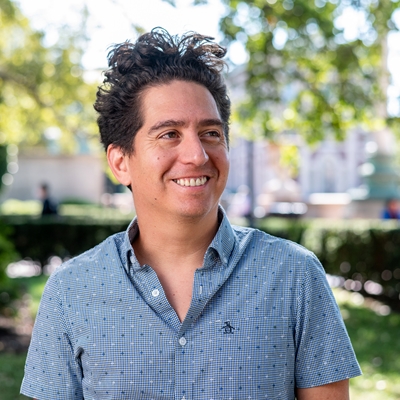
Event 62
Pankaj Mishra and Lea Ypi in conversation with Nesrine Malik
South to North Conversations: fiction from the remains of the empires
Centro de Convenciones (Salón Barahona)
Read moreTo rethink the world, it is also necessary to look at the edges of the map. Pankaj Mishra (India) and Lea Ypi (Albania), two fascinating minds from the global South, talk to us about different realities —post-colonial India and post-Communist Albania—, but with a single intuition: the peripheries, the remains of empires, have much to offer in building the world in which we live. They talk to Nesrine Malik about the moral arrogance of the West and the importance of listening to other voices.
Simultaneous interpretation from English to Spanish available
All events on Sunday, February 1st will be free for people with ID from the department of Bolívar. Complimentary tickets can be requested —up to capacity— at the box office of the Hay Festival (Centro de Convenciones) showing your identification on the same day the event is taking place.
With the support of Open Society Foundations and the British Council

Event 63
Carlos Chamorro, Denise Maerker and Jan Martínez Ahrens in conversation with Diana Calderón
Journalism and its challenges
Teatro Adolfo Mejía
Read moreAll the indicators are telling us that journalism is in crisis. Those who run the most important media organisations face a host of challenges: politicians at war with the media, fake news and post-truth, falling readerships, the delegitimisation of the profession, workers’ conditions in the industry, the killings of journalists in Latin America… However, despite it all, the major media organisations are still our fourth estate. To celebrate 50 years of El País, Jan Martínez Ahrens, the newspaper’s Editor-in-Chief will talk to Carlos Fernando Chamorro, founder and director of the Nicaraguan outlet Confidencial –currently operating from exile in Costa Rica–; and Denise Maerker, one of Mexico’s most respected voices, who currently presents N+ and writes for Milenio. The three will discuss these matters, and will talk to a colleague in the profession, the Colombian Diana Calderón (Caracol Radio).
All events on Sunday, February 1st will be free for people with ID from the department of Bolívar. Complimentary tickets can be requested —up to capacity— at the box office of the Hay Festival (Centro de Convenciones) showing your identification on the same day the event is taking place.
Coorganised with EP America

Event 64
Fer Rivas and Javier Peña in conversation with Alexandra Vives
Bidding a father farewell
Centro de Formación de la Cooperación Española (Patio)
Read moreOne is never ready to say goodbye to one’s father. Even more so if you have a secret to tell, as was the case for Fer Rivas; or if they have been apart for years, as happened to Javier Peña. These two will talk to Alexandra Vives about how they have expressed this delicate moment in their books. Yo era un chico, by Rivas, is an autobiographical novel in the form of a letter to her father, telling him, ten years after, everything that went unsaid before. With Tinta invisible, Peña tells us that, in those final days, he realised it was literature that had built their father-and-son relationship, and talks about how “we are made of stories”.
All events on Sunday, February 1st will be free for people with ID from the department of Bolívar. Complimentary tickets can be requested —up to capacity— at the box office of the Hay Festival (Centro de Convenciones) showing your identification on the same day the event is taking place.
With the support of the Institut Ramón Llull and Acción Cultural Española AC/E
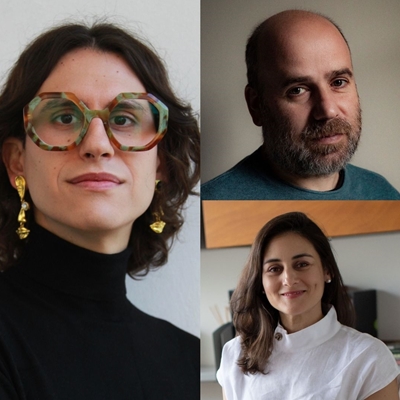
Event 65
Rafael Dumett in conversation Nahum Villamil
Incas, spies and astronauts
Palacio de la Proclamación (Auditorio Juan José Nieto)
Read moreIncas, espías y astronautas is a book about the recurrent concerns, sympathies and interests of Rafael Dumett (Peru). In this book of essays and prose, he looks to the past to visit some counterfactual historical scenarios; and, at the same time, turns his gaze to the future, imagining the obstacles faced by the first humans to migrate from Earth to new planets. He also traces a map of concerns that is both erudite and personal and reveals the scaffolding behind his literary profession. On all this, and the success of novels such as El espía del Inca and El camarada Jorge y el Dragón, he will talk to Nahum Villamil.
All events on Sunday, February 1st will be free for people with ID from the department of Bolívar. Complimentary tickets can be requested —up to capacity— at the box office of the Hay Festival (Centro de Convenciones) showing your identification on the same day the event is taking place.

Explore All Genres
- Afrodescendencias
- Latin America
- South to North
- Art
- Arts & Culture
- Children
- Culture
- Design
- Drawing
- Economics
- Equality
- Fashion
- Film
- Food
- Gender
- History
- Human Rights
- Indigenous Cultures
- Journalism
- Language
- Law
- Literature
- Music
- Nature & Environment
- Philosophy
- Photography
- Podcast
- Poetry
- Politics
- Psychology
- Religion
- Science
- Sport
- Technology
- Theatre
- Workshops
- World Affairs
Partner for Latin America

Principal Sponsors
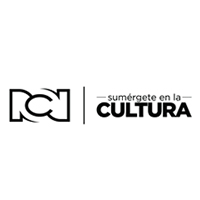

Government Partners
